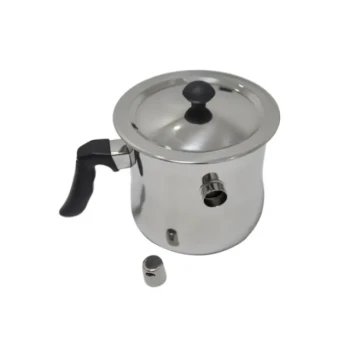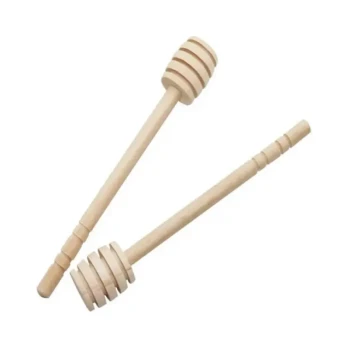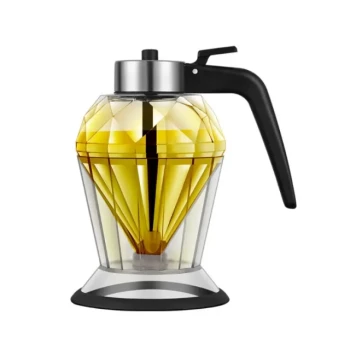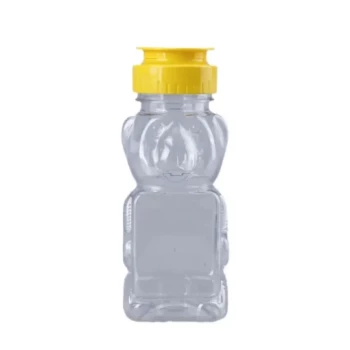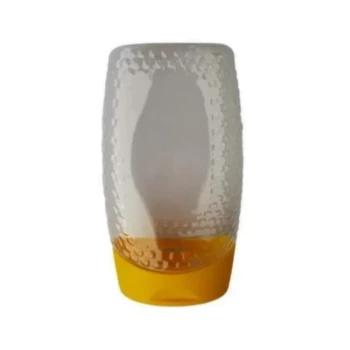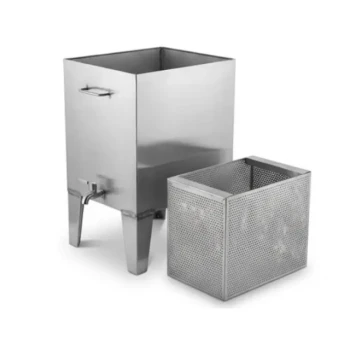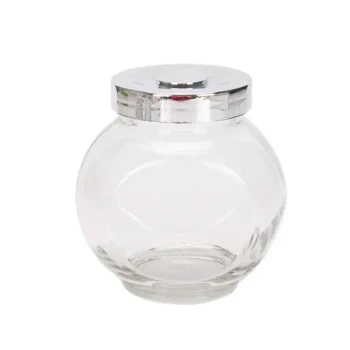In short, humans value honey because it is a unique, natural sweetener with a complex flavor profile and remarkable properties that make it useful as both a food and a medicine. Its value is rooted in its biological origin, its chemical stability, and its deep history intertwined with human civilization.
Honey's enduring value stems not just from its sweetness, but from its unique composition. It is a substance engineered by bees for long-term preservation, which incidentally gives it properties that humans have prized for millennia as a stable food, a preservative, and a natural therapeutic agent.
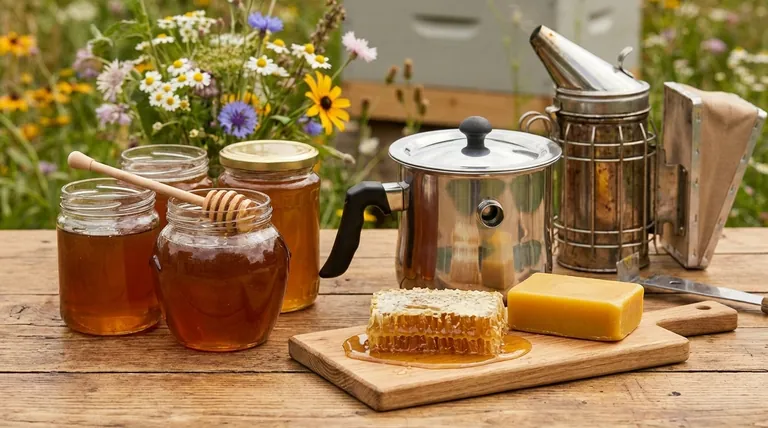
The Unique Composition of Honey
Honey's value begins with its chemical makeup, which is far more complex than that of refined sugars.
More Than Just Sugar
While honey is primarily composed of fructose and glucose, it is not just simple syrup. It also contains trace amounts of enzymes, amino acids, B vitamins, minerals like iron and zinc, and antioxidants.
These compounds, though small in quantity, contribute to its distinct character and some of its perceived health benefits, setting it apart from empty-calorie sweeteners.
A Spectrum of Flavors
The taste, color, and aroma of honey are directly influenced by the types of nectar the bees collect.
This creates a vast culinary landscape, from light and floral acacia honey to dark and robust buckwheat honey. This variety makes honey a gourmet ingredient, not just a commodity.
The Power of Bee Enzymes
During honey production, bees add an enzyme called invertase, which breaks sucrose from nectar into glucose and fructose. They also add glucose oxidase, which helps create the conditions that protect the honey from spoiling.
A Natural Preservative and Healer
The same properties that allow honey to last indefinitely in the hive are what make it so valuable as a stable food and a healing agent.
Unmatched Stability
Honey has a very low water content and is highly acidic (with a pH between 3.5 and 4.5). This combination creates an inhospitable environment for bacteria and other microorganisms.
Because microbes cannot grow in it, honey will not spoil. This made it an incredibly valuable and reliable source of calories for early humans.
Antimicrobial Properties
The enzyme glucose oxidase produces small amounts of hydrogen peroxide when honey is diluted, which has a mild antiseptic effect.
This, combined with its acidity and low moisture, gives honey natural antimicrobial properties, which explains its long history of use in wound care.
A Historical Source of Medicine
For thousands of years, civilizations have used honey to soothe sore throats and coughs. Its thick consistency coats the throat, and its natural properties may help reduce irritation.
Understanding the Trade-offs and Considerations
While valuable, it's important to approach honey with a clear understanding of what it is and what it isn't.
Not All Honey Is Created Equal
Raw honey is honey as it exists in the beehive, often just strained to remove debris. Processed honey is often pasteurized (heated) to kill yeast and prevent crystallization, but this heat can destroy beneficial enzymes and antioxidants.
High Sugar Content
Despite its benefits, honey is a sugar. It is calorically dense and will impact blood sugar levels. It should be consumed in moderation as part of a balanced diet.
The Risk of Infant Botulism
Honey can contain spores of the bacterium Clostridium botulinum. While harmless to adults, an infant's immature digestive system can allow these spores to colonize and cause serious illness. For this reason, honey should never be given to children under one year of age.
Making the Right Choice for Your Goal
Selecting the right honey depends entirely on your intended use.
- If your primary focus is culinary flavor: Seek out different monofloral honeys (like clover, orange blossom, or lavender) to explore their unique taste profiles.
- If your primary focus is maximum health benefits: Choose raw, minimally filtered honey from a trusted source to ensure its natural enzymes and pollen content are intact.
- If your primary focus is simply a natural sweetener: Any pure honey can effectively replace refined sugar, though some of the more delicate properties may be lost in processed versions.
Ultimately, honey's value is a direct result of its purpose in nature, providing us with a substance that is simultaneously a food, a flavor, and a functional remedy.
Summary Table:
| Key Reason | Brief Explanation |
|---|---|
| Complex Flavor Profile | Derived from various nectar sources, offering a wide range of tastes and culinary uses. |
| Natural Preservative | Low water content and high acidity prevent spoilage, making it stable for long-term storage. |
| Antimicrobial Properties | Contains enzymes like glucose oxidase, which produces hydrogen peroxide for mild antiseptic effects. |
| Nutritional Value | Includes trace enzymes, vitamins, minerals, and antioxidants, unlike refined sugars. |
| Historical Significance | Used for millennia as both a food source and a natural remedy for sore throats and wounds. |
Source Pure, High-Quality Honey with HONESTBEE
Whether you're a commercial apiary looking to enhance your honey production or a distributor seeking reliable, premium beekeeping supplies, HONESTBEE is your trusted wholesale partner. We provide the essential equipment and knowledge to help you maximize the value of your honey—from hive management tools to extraction systems that preserve honey's natural benefits.
Contact us today to discuss your wholesale needs and discover how our products can support your beekeeping success.
Visual Guide
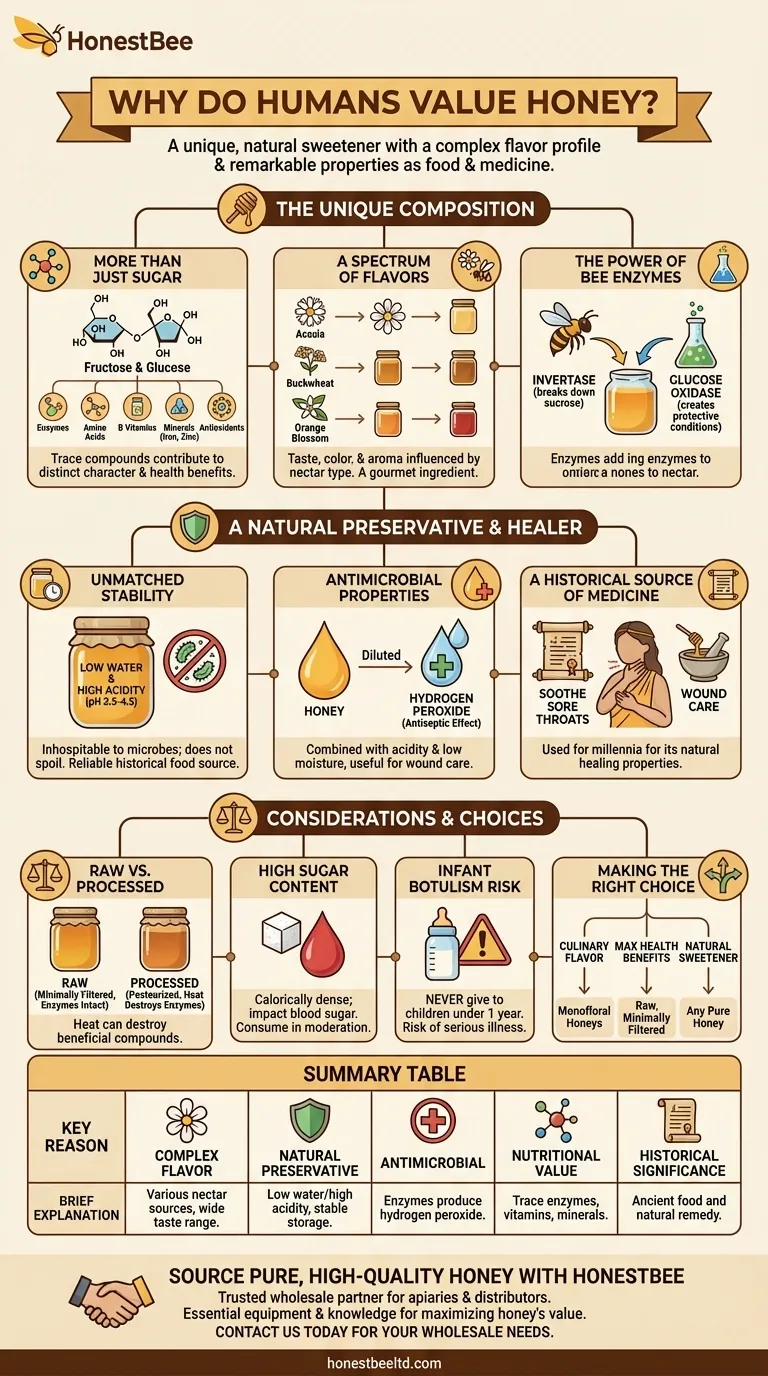
Related Products
- Beeswax Melter for Candle Making Honey Bee Wax Melter
- Stainless Steel Honey Press Wax Press with Tank
- Professional 500g Sectional Comb Honey Frame System for Beekeeping
- Plastic Honey Gate Spout with Wing Nut for Beekeeping Honey Bucket
- Stainless Steel Manual Honey Press with Guard for Pressing Honey and Wax
People Also Ask
- What is the economic value of integrating Catnip cultivation with automated honey harvesting? Boost Your Apiary ROI
- What are the benefits of using wooden hives or bio-mimetic logs for stingless bees? Optimize Pollination & Yield
- Why is the selection for gentleness in bee colonies important for efficiency? Optimize Your Apiary Operations
- What is the significance of traceability and certification consumables? Elevate Your Organic Beekeeping Compliance
- What role does a constant temperature incubator set to 34°C play in drone emergence? Optimize Bee Breeding Success
- Why are standardized 50ml collection containers used for honey sampling? Ensure Data Accuracy and Consistency
- What trend is emerging in modern honey packaging materials? Embrace Sustainable and Eco-Friendly Solutions
- Is there a manual method to check if honey is ready for harvest? Mastering the Shake Test & Visual Indicators
